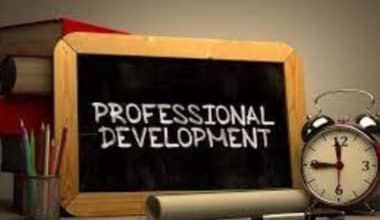Whether you are a first-time job seeker or an experienced professional applying for a position in a new company or industry, your resume is the first thing a potential employer will see of you and what you can offer. You can use the tips in this article to make sure that your resume shows off your unique skills.
Why Is Important to Put Your Skills on Your Resume
Putting your skills on your resume helps the person who is hiring decide if you are a good fit for the job. Also, potential employers care about whether or not you have the fundamental skills necessary to do the job. However, your unique set of skills and experiences sets you apart from the competition beyond just these basics. It’s possible that your set of skills could provide a company with a chance to incorporate fresh ideas.
What Are the Top Unique Skills for Resume?
For your resume, consider these unique skills that employers may be looking for:
#1.The Ability to Listen Attentively
Active listening means paying undivided attention to the speaker, processing what they are saying, and then replying thoughtfully. People who are good at listening employ both verbal and nonverbal methods to demonstrate and maintain focus on the speaker. If you can actively listen, you can show your coworkers that you care about the success of the group and the project at hand.
#2. Effective Verbal and Nonverbal Communication Skills
The ability to effectively convey and receive information is a key component of effective communication. Sharing your thoughts, emotions, or observations of the world around you is also a good example of a unique skill to list on your resume. The ability to listen, speak, observe, and empathize is the foundation of effective communication. Strong communication skills are essential for success in any field and at any level of employment.
#3. Knowledge of Computers
The ability to pick up and use new pieces of technology constitutes a core component of computer literacy. However, simply knowing how to turn components on and off counts as hardware knowledge. Having software proficiency allows you to make the most of your time spent in front of a computer. Employers may require candidates to have specific software skills, such as the ability to use spreadsheets or familiarity with a particular programming language.
#4. Ability to Provide Excellent Service to Customers
Possessing excellent customer service skills entails having the personal qualities and honed habits that allow you to meet the needs of your clients and leave a lasting, positive impression. Unique skills in problem-solving and communicating with customers are essential for your resume. The ability to listen attentively and understand nonverbal cues from customers is an example of a “soft skill” that falls under the umbrella of customer service.
Skills in interacting and communicating with other people are also known as interpersonal skills. However, they range from general situations requiring cooperation to more specific ones. To collaborate effectively, find solutions to problems, and take charge of projects or teams, it’s crucial to hone one’s interpersonal skills.
#6. Leadership Qualities
This is the ability to also lead others toward a common goal. However, leadership skills are necessary for any situation where you are responsible for getting other people to carry out a series of tasks, usually by timeline.
#7. Skills in Management
Management abilities allow you to exercise management over both tasks and people. If you also want your team or project to succeed, you need a well-organized manager, who has strong interpersonal skills and can convey their vision. Managers also need to have a firm grasp of the technical and soft skills unique to their field.
#8. Problem-Solving Skills
One definition of problem-solving skills is the ability to quickly diagnose a problem’s root cause and develop a workable solution. Moreover, this ability is highly sought after in a variety of positions across all sectors. You may also need technical expertise relevant to your industry or occupation to effectively solve the problems that arise in your role.
#9. Effective Time Management Skills
Mastering the art of time management can help you succeed in both your professional and personal lives. Keeping your day well-organized will allow you to prioritize your work and get the most out of your time. When deciding how to allocate your time, it can be helpful to have a thorough understanding of your personal, team, and company goals.
#10. Easily Transferable Abilities
Whenever you decide to switch jobs or careers, it’s important to have transferable skills that will be valuable to any potential employer. Abilities like adaptability, organization, and teamwork are examples of transferable skills. When applying for a new job, especially one in a different industry, you can highlight your transferable skills to highlight your experience and qualifications.
#11. Competence in Making a Presentation
You need strong presentation skills if you want to deliver presentations that are both informative and interesting to a wide range of audiences. With this ability, one can engage the audience and communicate the information.
Also, participate actively in the presentation; read and react appropriately to the thoughts of your listeners. These abilities allow you to determine the most effective means of communicating your ideas and strengthen your ability to persuade others. Skills in public speaking are increasingly valued in today’s society. This is because being able to communicate effectively with clients and customers is crucial.
Tips for Giving Better Presentations
It takes a lot of time and works to become an effective presenter. You should do the following to hone your oratory abilities Before giving a presentation,
- It’s important to study your target demographic.
- Create an efficient framework for your presentation.
- Get plenty of practice in.
#12. Professional Marketing Abilities
Skills in marketing are those that are directly relevant to the marketing profession. “Marketing is the management process for identifying, anticipating, and profitably satisfying customer requirements,” as defined by the CIM (Chartered Institute of Marketing). However, one cannot be successful in marketing without possessing these abilities.
When an employer is serious about finding someone qualified for the position, they will go out of their way to find candidates who can do the job and do it well. To convince a potential employer that you are the best person for the job, you should emphasize the relevant experience and abilities on your resume. To be truly successful, a marketer needs to develop both technical and interpersonal abilities. You should emphasize on your resume the following abilities as the most crucial for a marketing position:
- Critical Imagination
- Communication
- Statistic Analysis of Social Networks
- Online and mobile ads
- Structure and design
- social abilities
#13. Team Management
The management of a team entails steering its members toward the accomplishment of a shared objective. To effectively manage a team, one must be able to encourage, motivate and inspire its members to do their best work and develop professionally.
Team management formation can look very different depending on the people and conditions at work. While some managers thrive when given the freedom to direct their teams, others prefer the power to set the tone. Members of a team’s productivity can occasionally react differently to various management styles. To effectively manage a team, you must first learn your team’s dynamics and your preferred leadership style.
#14. Managing Projects
A wide range of abilities, including the ability to initiate, plan, collect, and execute a task or project, are necessary for successful project management. If there are problems, delays, or issues in the project, the project manager is responsible for working with the client or company to review and resolve them. They oversee the projects and the people working on them to ensure that progress is being made and that everyone stays on track. Project managers are essential during major organizational changes like the introduction of new products, the development of new sites, or the introduction of new programs.
The following abilities are necessary for project management:
- Leadership
- Management
- Negotiation
- Organization
- Problem-Solving
- Budgeting
- Knowledge of a Second Language
#15. Ability in Design
The design industry is dynamic, constantly developing, and changing. Using engaging visuals and graphics is a great way to express your ingenuity as a designer. What a designer can depict depends entirely on their talent. Skill in design is a must-have if you want to strike out on your own as a freelancer.
#16. Ability to Handle Criticism
To be able to take criticism well, you need to be receptive to feedback, attentive to constructive criticism, and able to use that criticism to improve your future results. The ability to take criticism, whether it comes in the form of a formal annual review or more informal comments on the development of a project, is a valuable soft skill. Employees who can’t take constructive criticism aren’t likely to advance in their careers or see their performance improve.
#17. Creativity
The ability to think creatively on the job is a valuable soft skill that is applicable outside of traditional creative fields. On the contrary, creativity or creative thinking is the process of approaching a topic or problem in a novel, non-conventional way in order to arrive at a novel, ground-breaking solution. Job postings, for instance, are increasingly being publicized on social media sites like LinkedIn as a result of this type of innovation in the workplace. In order to be creative, one must pose novel problems, abandon or at least temporarily shelve commonly held beliefs, and bring together previously unrelated elements.
#18. Dependability
An employee who can be counted on to do what they say they will and act in a consistent manner is someone who is reliable. Employers value employees who are reliable because they can rely on them to consistently perform their duties without constant oversight. As a soft skill, dependability is highly prized whether one is serving in a leadership or team member capacity.
#19. Teamwork in Unique Skills for Resume
Teamwork is an essential skill for most jobs, so it goes without saying that showing that you can work well with others will make you stand out as a candidate. Even if you work independently for the most part, you still need to keep in mind the bigger picture of your company’s objectives as you go about your daily tasks. Therefore, it’s important to let others in the company know about your successes and to work closely with them to achieve optimal outcomes. Putting your teamwork experience front and center on your resume is also a great way to show off a valuable skill that employers are looking for.
#20. Honesty and Integrity
Those who admit their faults and never makeup excuses for missing work will be rewarded. In the long run, dishonest workers will be blacklisted by upper management, which could lead to being passed over for promotions or even termination. Your recruiters will be intrigued to learn more about this unusual skill you listed on your resume and want to know how you plan to demonstrate it in the interview.
#21. Flexibility and Adaptability
Possessing the ability to quickly shift gears and adjust to new circumstances is crucial in today’s fast-paced, unpredictable workplace. When you’re given a new responsibility or asked to learn something completely out of your comfort zone, your employer knows they’ll be putting your skills to the test. A company needs employees who can adapt their strategies on the fly when problems arise. As a result, these abilities have skyrocketed in value in the job market in recent years.
Unique Skills for Resume Objective Examples
Some guidelines for describing your qualifications on a resume are as follows.
#1. Incorporate Job-Specific Abilities
Even if you’re skilled in a variety of areas, only highlight those that apply to the position you’re applying for. To begin, read through the job posting and also make a list of your relevant skills and experiences. You should give equal weight to the company’s description and culture as you do the job’s specifications.
#2. Put Your Abilities in a Separate Section
Since recruiters’ time is limited, it’s in your best interest to condense the information you present in your skills section. When you get to the interview stage, that’s when you can shine and sell yourself by elaborating on experiences and qualifications that didn’t make it onto your resume.
#3. Be sure to Highlight Your Abilities in Other Areas of Your Resume
Include relevant abilities not only in a dedicated skills section but also in the overview of your qualifications and your list of previous jobs.
#4. Describe Your Level of Expertise (When Appropriate)
A person’s “skill level” is a measure of how well they are versed in a particular area. Personal and professional qualities can be categorized as novice, intermediate, proficient, or expert to show the extent to which you have mastered a specific skill.
#5. Include at Least Two to Four Generalized Forms of Interpersonal Competence
Whether working alone, in a team, or both, soft skills and resumes are highly valued by employers. The following are examples of unique skills for your resume
- Administration of time
- The power of clear expression
- Adaptability
- Creativity
- Problem-solving
- Interpersonal abilities and leadership
- Honesty Carefulness Diligence
What are the unique hard skills for a resume?
Hard Skills Examples List
- Technical skills.
- Computer skills.
- Microsoft Office skills.
- Analytical skills.
- Marketing skills.
- Presentation skills.
- Management skills.
- Project management skills.
FAQs
What are examples of unique skills?
Examples of unique are Interpersonal Skills, Conflict Resolution critical thinking, Problem-Solving, etc.
what are the soft skills you need in todays workforce ?
Leadership Skills.
Teamwork.
Communication Skills.
Why is it important to include soft skills on your resume?
The way you handle your work and communicate with others is a reflection of your soft skills. Soft skills, such as communication, teamwork, time management, etc., are highly sought after by employers for this very reason.
Related Articles
- 53+ Hard Skills And How To Highlight Them On A Resume
- Competent: Definition, Communication, Management & Example
- Problem Solving Skills: Examples of How to Demonstrate them(
- Interpersonal Communication: Meaning & 10 Must-Have Workplace Skills






